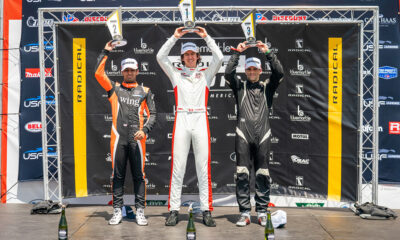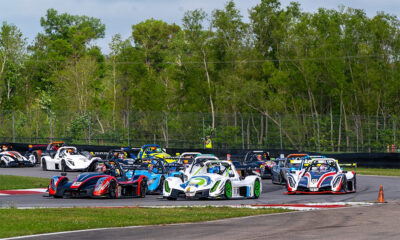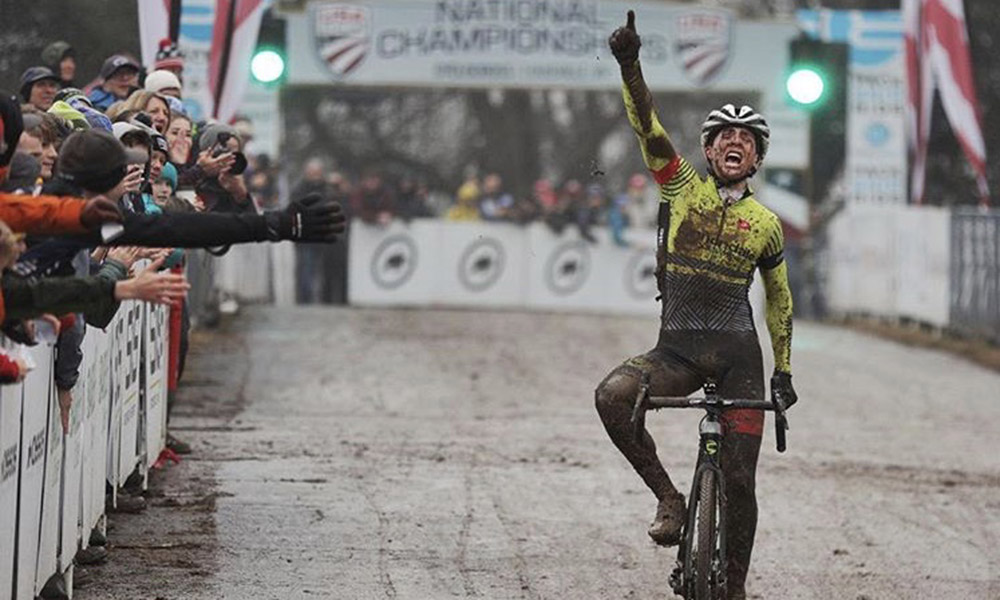
Photo: Supplied
There’s something about cyclists having a penchant for motorsport.
A few years ago, Britain’s six-time Olympic track gold medallists Sir Chris Hoy and Jason Kenny exchanged pedal power for horsepower, competing in Radicals and more.
Fast forward to 2021 and there is another cyclist making the same step: Blue Marble Radical Cup North America driver Alex Morton is a former national cyclocross champion who has also ridden for his country.
But what makes his story different to Hoy’s and Kenny’s is that he joined motorsport at a much earlier point in his life.
At 19, the Michigan native is starting afresh in cars and hoping to launch a new racing career.
“I first moved to Europe when I was 15 to race for Team USA,” says Morton, who started in motocross and track cycling before becoming a pro cyclocross rider. “For three years after that, we moved to the Netherlands to race for a few months there.”
Morton represented the USA at three UCI world championships, twice in the Junior category and once at Under 23 level last year.
With such a promising junior career to build on, why did he convert from one set of pedals to another?
“I kind of just became addicted to racing cars,” he says. “I just couldn’t get the feeling on a bike that I could in the car. I had some overuse injuries as well, related to cycling from over the years.
“That’s when I started deciding to make the transition completely over to cars.”

Photo: Radical
The two activities overlapped for a while. Four years ago, Morton was introduced to motorsport by his parents, who own a garage at the M1 Concourse circuit in Michigan.
After learning the basics there, it was arranged for Morton to appear in the 2019 SCCA Formula Enterprises series.
At that point, Morton was still cycling competitively and successfully, winning nationally and maintaining his Team USA selection.
2020 saw Morton’s motorsport hobby assume a greater role as he joined the Formula 4 US Championship, while his cyclocross outings became less frequent.
A tough run of F4 races led to him parting ways with his team midway through the campaign, but he was determined to press on with what had become his primary focus.
The early end to the season gave time to figure out what to do next.
“I struggled to find sponsorship over the winter, but I got my first opportunity to test a Radical in March, down in Texas,” recalls Morton. “I adjusted to the car really quickly.”
The Radical he drove was the 226-horsepower SR3XX: the latest iteration of the manufacturer’s top-selling model.
Testing enabled Morton to learn about the aero-focused super sports car having previously only handled junior single-seaters where mechanical grip is king.
Satisfied with his impressions and excited by his discovery, Morton returned to Michigan full of ideas about his next racing career step. Radical’s North American series was the obvious direction, and it didn’t take long to find a partner that could facilitate a program.
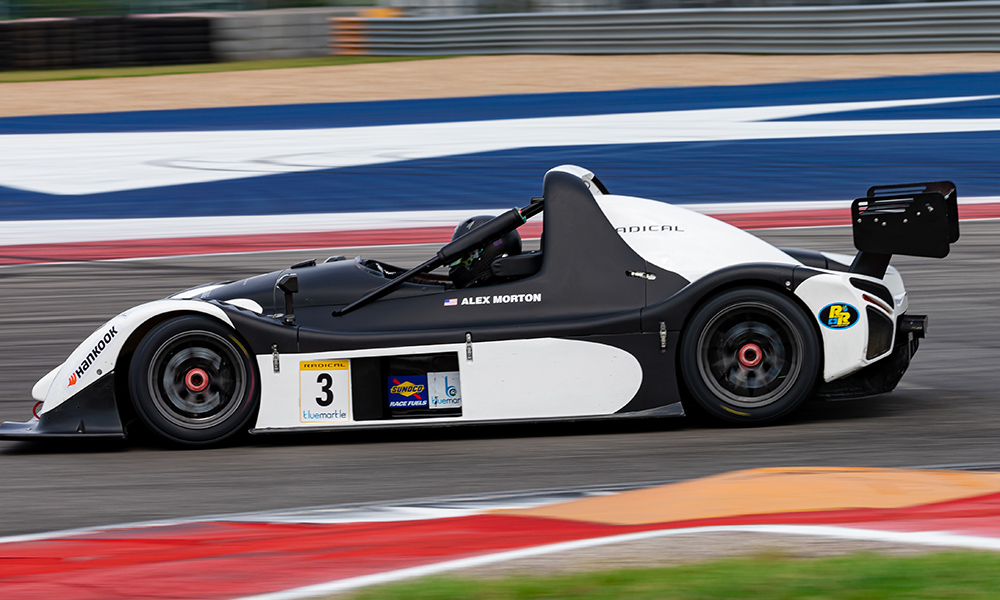
Photo: Radical
“My dad was in contact with Team Stradale before I was!” he explains. “We were pretty set that I wanted to run in the PRO 1500 class.
“I got to do a test at Autobahn Country Club in Joliet in the first week of April. I did three days and I just felt really welcome in the team.”
Despite the immediate connection with Stradale, an intense yet short pre-season program meant that Morton wasn’t brimming with confidence when he arrived at Barber for his Radical debut on April 15-17.
Nonetheless, that weekend on the IndyCar support bill heralded a promising trio of top-fives, while round two at Road America yielded his maiden class win to put him fourth in the PRO 1500 standings after six races.
“At Barber we were happy to sit where we sat, with the limited seat time,” he says.
“At Road America we had some setup issues, but we flipped that around and were able to get back up to pace from the middle of the weekend on.”
Morton hasn’t discarded cycling despite motorsport now occupying his competitive focus.
He still rides to nurture his fitness in preparation for upcoming race weekends at physically demanding tracks like COTA and Road Atlanta.

Photo: Radical
At 40-minutes, Radical Cup North America races are similar in length to cyclocross events, but the resemblances end there. Continuous pedalling over variable terrain and occasional dismounts to negotiate obstacles make cyclocross physically stressful, while motorsport carries a higher mental strain and the pressure of g-forces.
“Bikes, especially off-road stuff, takes a lot of focus,” Morton explains. “But it’s very physically dominant. I’d say that the difficult thing about a car is that focus-wise, you’re at maximum capacity every single lap.
“When you’re hot and further into the race, the physical aspect is going to affect your focus. A car isn’t quite as high of a physical demand as bikes, but it meets the overall capacity just because it takes a lot more mental focus.”
Motorsport is better for Morton’s schedule, which is currently based around a four-year course at Michigan State University.
The second-year public relations student is using his summer break to focus on the Radical season: there’s no more dipping out of term time for winter cyclocross races.
Morton appears happy with his two big racing career switches, from cycling to motorsport and then from open-wheel to Radical. The next step is unknown.
Could Morton embark on a Radical residency or use his current position as a springboard to other ventures? Both possibilities are attractive.
“I’d love to race professionally in the future,” he said. “I feel like Radical is an amazing stepping stone for that.
“But I also love the car, so maybe I don’t want to leave it in the future. We’ll see where it takes me.
“I’ve raced all around the world previously in bikes. If I ever got the opportunity to leave America, I would 100 percent go and race in Europe.
“I’m keeping my options open for the future.”
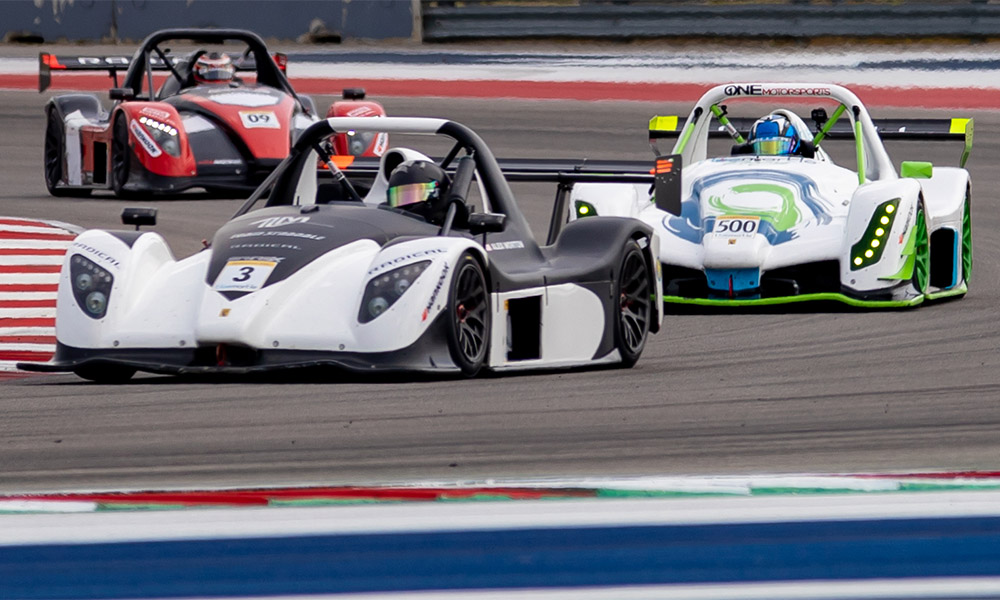
Photo: Radical





















